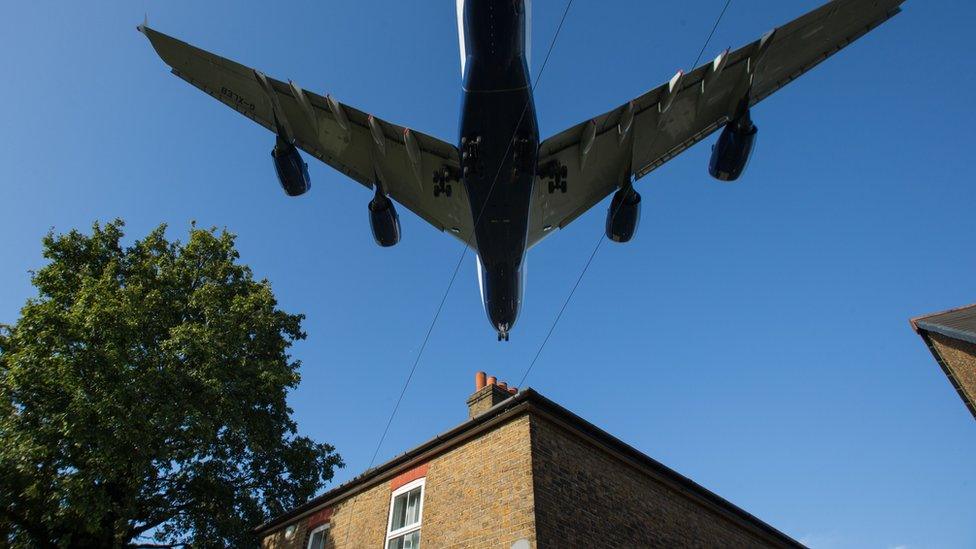Climate Change: Tough questions at first UK assembly
- Published
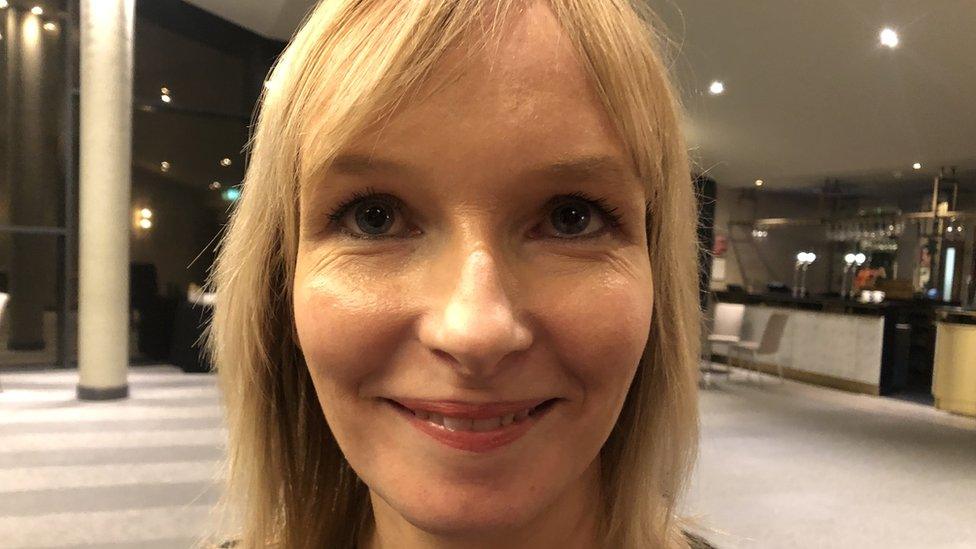
Tracey, a carer from Northern Ireland, was among those who attended the UK's first climate change assembly
From the corners of Britain, members of the first UK "citizens’ assembly" on climate change descended on Birmingham.
There was Sharron-Ann, in pink fun fur coat - a young mum with children at home in Scotland.
Journalists were only allowed to speak to assembly members who had expressly volunteered to meet the media - and most of them did not offer their surname.
So we met Mark from Manchester, Tracey, a carer from Northern Ireland, and Ibrahim, a GP from Surrey.
They are among 110 members of the public chosen to reflect the nation in diversity of age, ethnicity, geography and opinion.
And they include those who are unworried by climate change, along with others who are positively alarmed.
Gathering of 'ordinary people'
After four weekends they will make recommendations to MPs on how the UK can fulfil its law on cutting emissions to virtually zero by 2050.
You might have thought a climate conference would be a meat-free zone, given the impact of belching cows and sheep on the atmosphere.
But this aims to be an extraordinary gathering of “ordinary” people, with no preaching.
That means lamb with couscous in the restaurant, along with honey-glazed chicken and sweet potatoes, as well as a vegan option.
In the nearby conference hall - with panoramic views over Birmingham's snaking road system - members heard talks from climate experts, and got the chance to ask questions.
These included: “Which is better for the environment - British beef or an avocado from Peru?"
“What do you think should be the balance of business and government action on climate change?"
“How committed are other countries to net zero?” And, “Is there an argument for letting climate change happen?”
Several questions were about fairness - about who should do most to address climate change, and how the actions the UK takes are fairly distributed across generations and income groups.
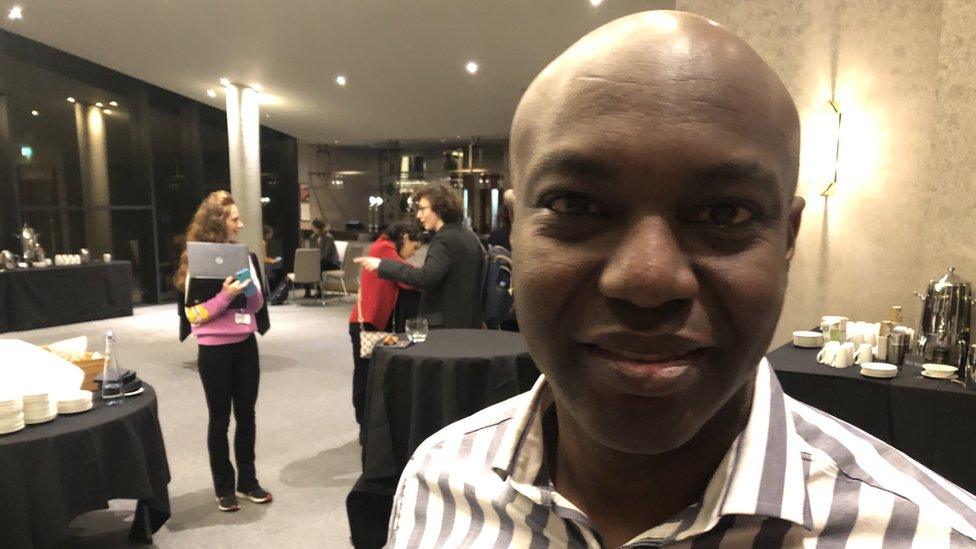
Ibrahim, a GP from Surrey, said he hoped the government would take the assembly's ideas forward
When Chris Stark from the independent advisory Committee on Climate Change was asked, “Who gets to decide what is ‘fair’?” his answer to the assembly was short and clear: “You do.”
Ibrahim, the Surrey-based GP, said: “Prior to this, I had a sort of background knowledge of climate issues but I wasn’t sure how I could be involved in making a change."
“My hope is that at the end, the government will take this assembly's ideas forward to put the changes in place that are needed."
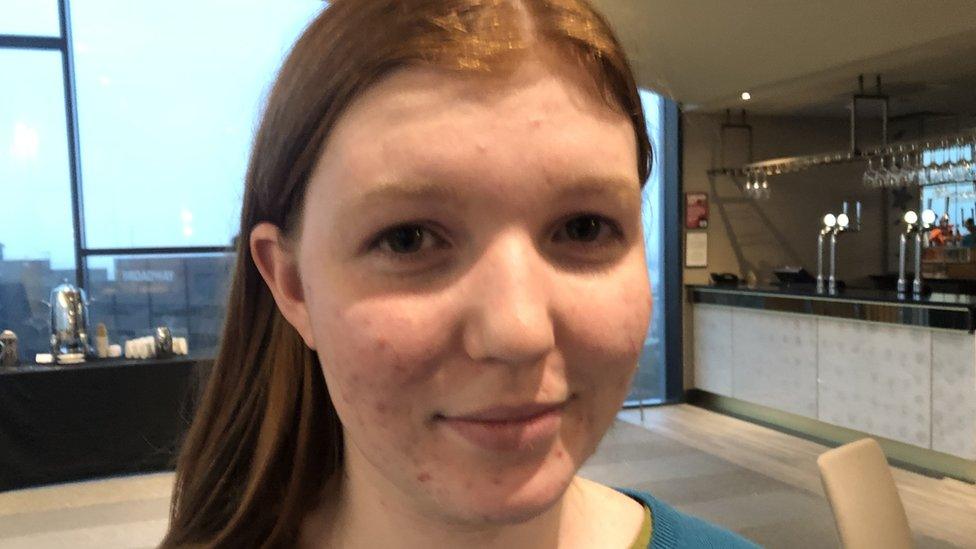
Leia, from north-east England, said people from her generation felt their voice wasn't being heard
Leia, from north-east England, recently lost her job as an engineering apprentice.
She said: “My generation is very worried about climate change. We want to have a safe environment.
“We hear politicians promising to take action but we don’t see a lot of that. We feel our voice isn’t being heard so hopefully the assembly will change that a bit.”
'Nobody seems to be agreeing'
Amanda Short, a project manager in healthcare from Surrey, said: “I think climate change is a big issue."
She added while the ideas of Extinction Rebellion were "very good... they have disrupted people trying to get to work. It’s gone too far".
She said holding the assembly was a much better option.
“We should all talk together, a cross-section of the public… and take it to the government."
Tracey, a carer from Northern Ireland, who has children aged five and 15, said: “The assembly is a great opportunity for a normal person’s voice to be heard, which is really important.
“In politics nobody seems to be agreeing.
"So it’s just so nice to pick people from different backgrounds. I definitely feel change has to be made - the sooner the better.”
But not all were convinced of the need for urgent action.

Mark from Manchester said he'd learned a lot from the sessions
Chris, an engineer from Oxford, said: “I heard about the assembly and was very sceptical.
"Before coming in my views were ‘not worried, not a crisis’. But I’m open to having my opinion changed.”
Mark, from Manchester, said he’d learned a lot from the sessions.
“I think people seem to be interested. There is a few people who are a bit sceptical but they have just been listening and it seems like something where we should take action.”
In two coming weekends the assembly will discuss issues raised in more detail, before drawing up conclusions in the final session.
Their report will go to MPs at the end of April.
Follow Roger on Twitter @rharrabin, external
- Published26 January 2020
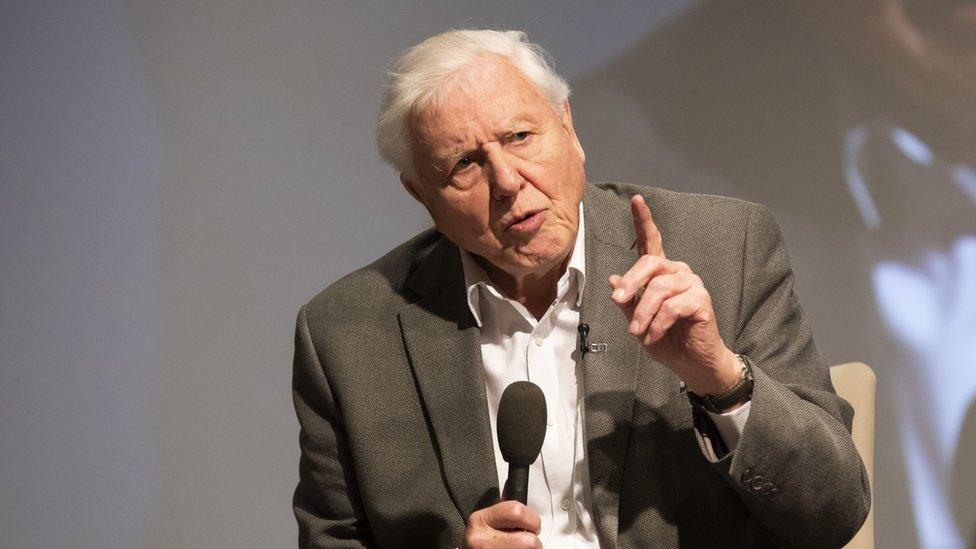
- Published17 January 2020
